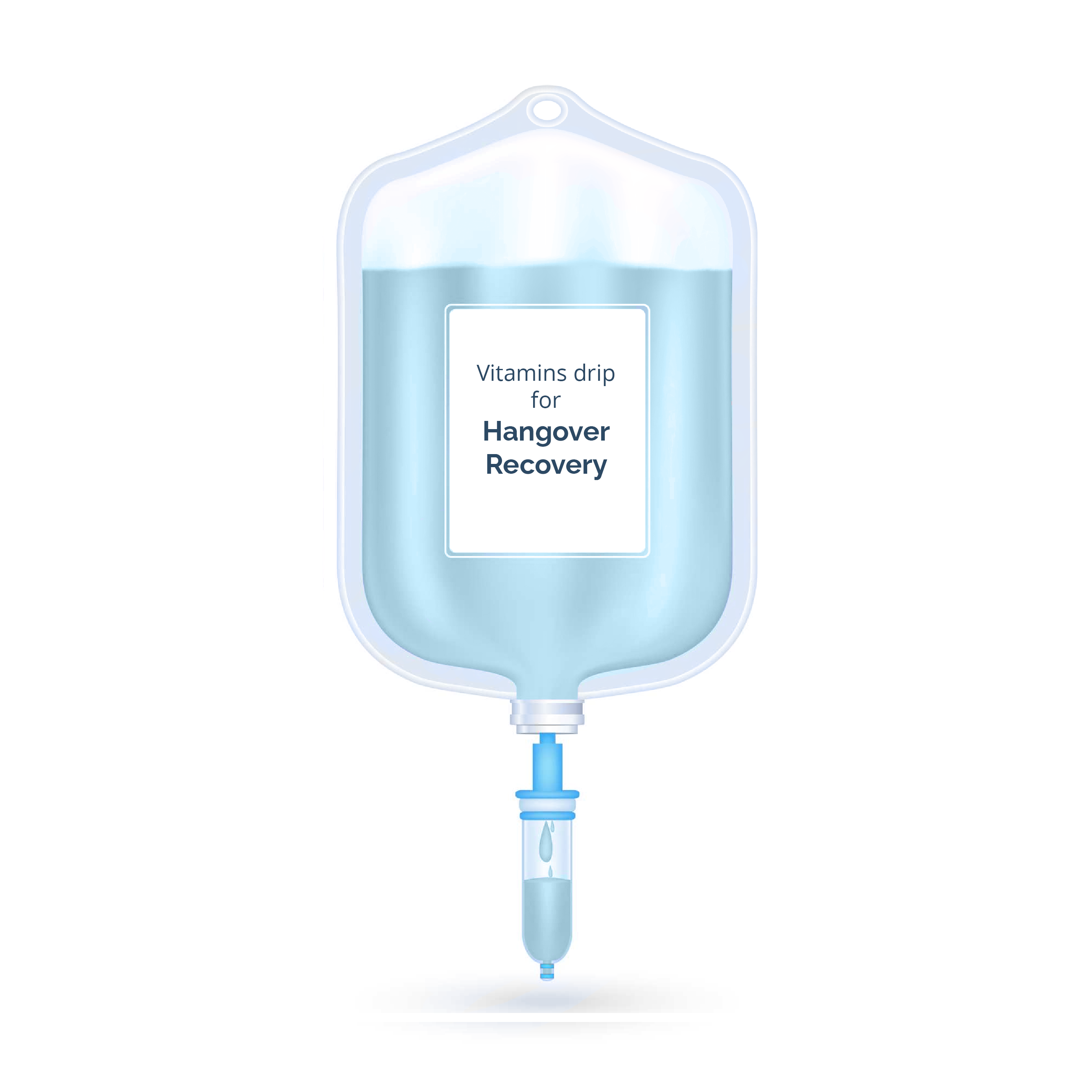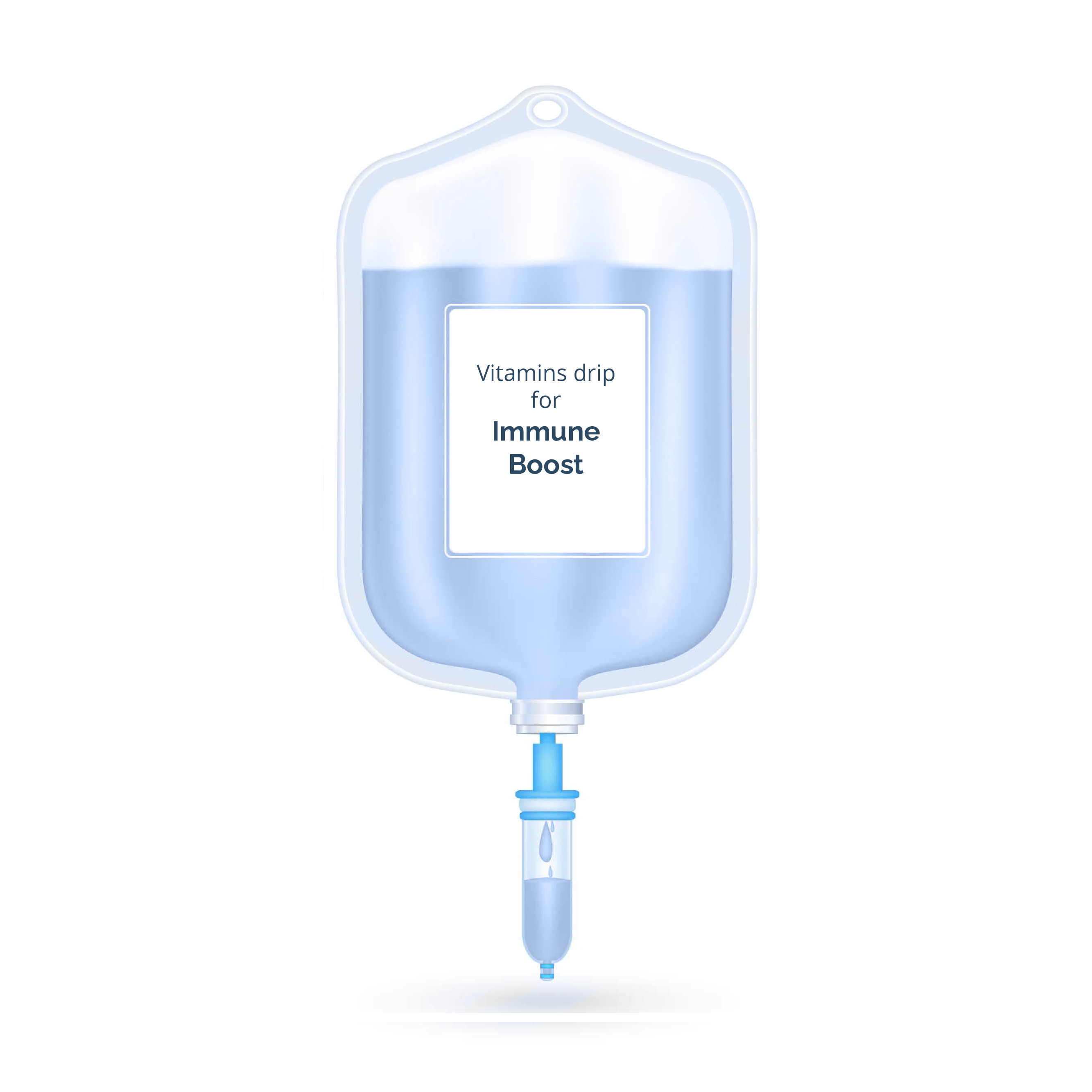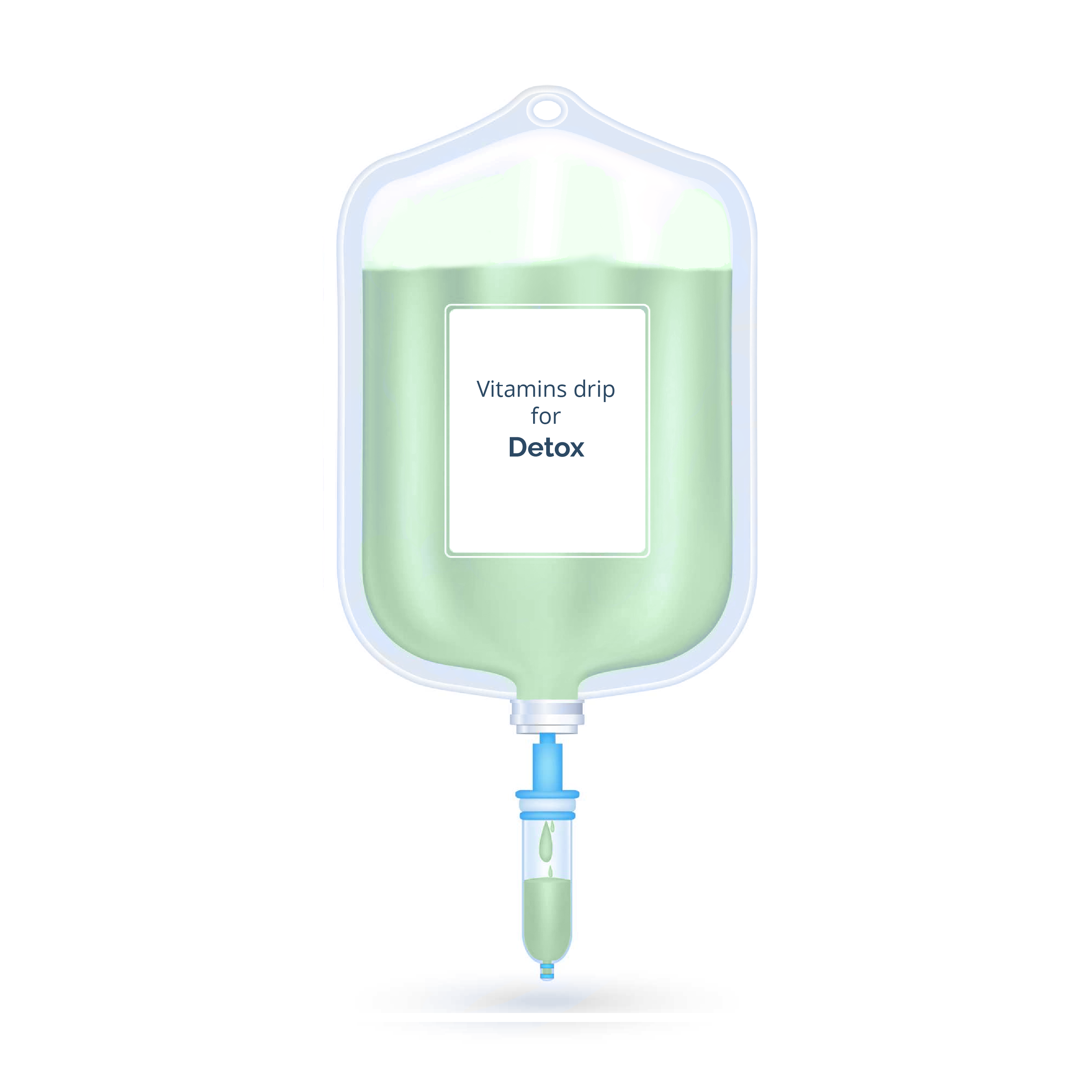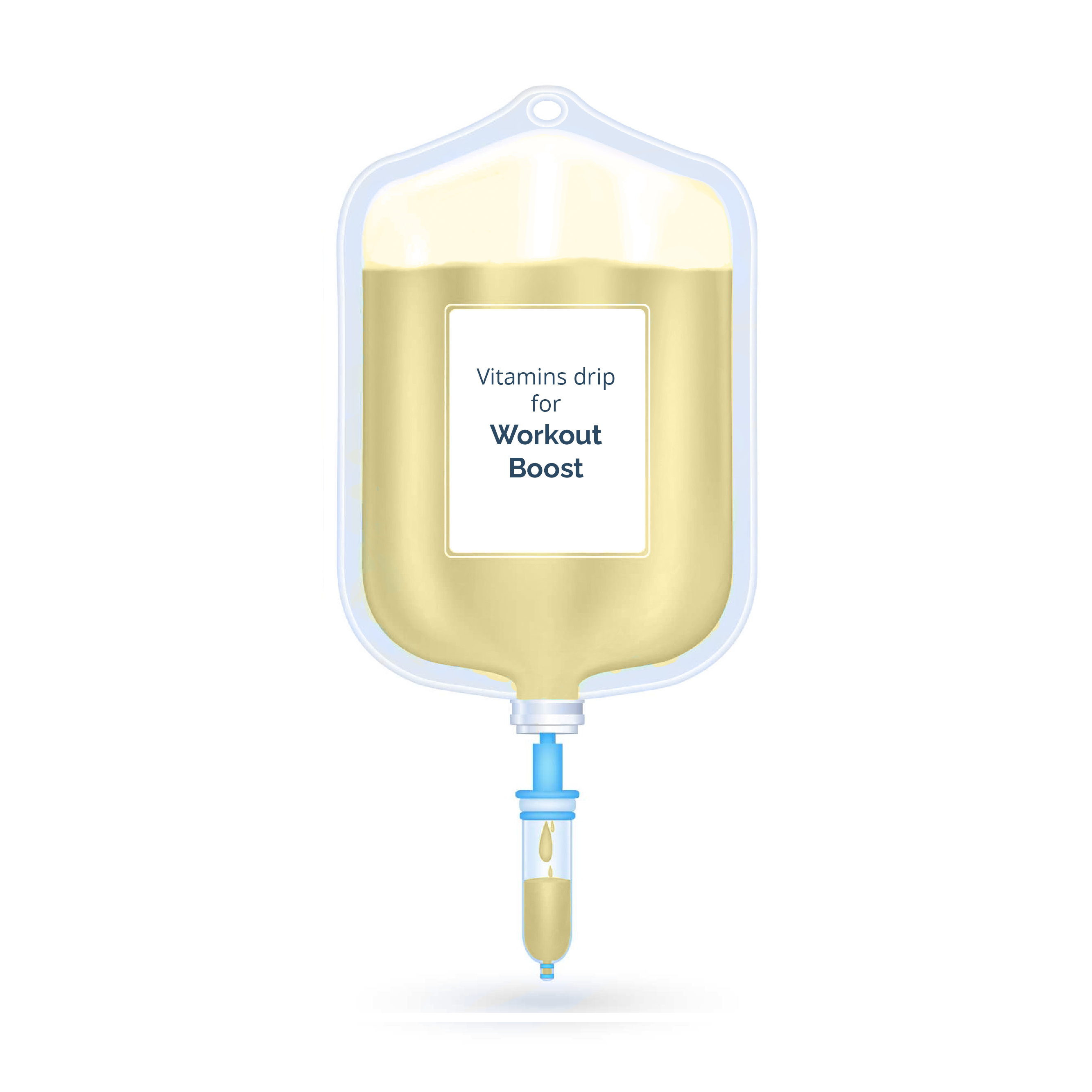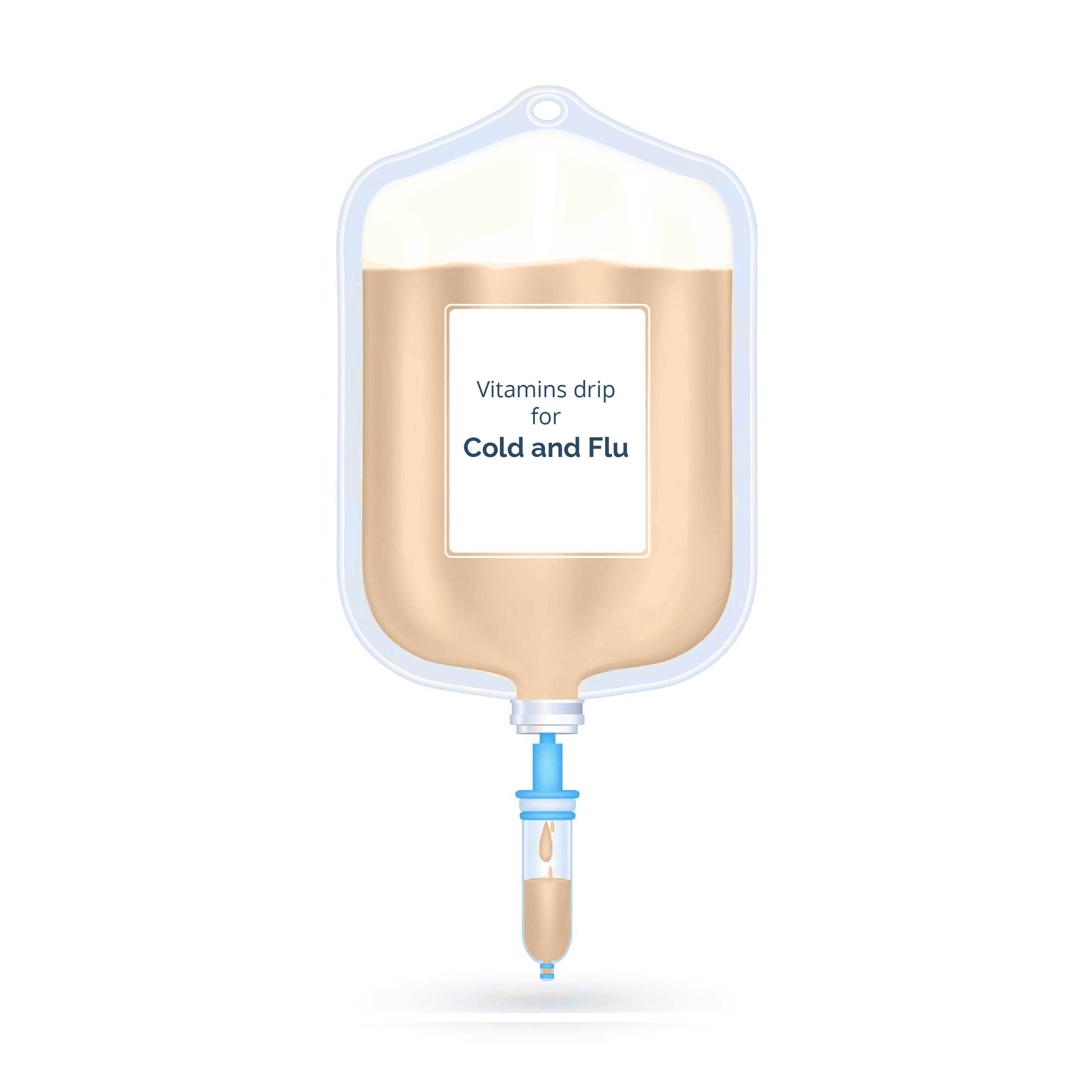
Hangover Recovery
Hydration is critical for the normal function of your body as it maximizes our Physical and Mental Performance. IV Hydration helps you Replenish and Rehydrate your body much faster than drinking water
The Hangover Recovery IV is formulated to:
Rehydrate your body with fluids
Reduce nausea and pain
Improve overall wellbeing
Get rid of body ache
Fill your body with electrolytes
Maximizes your performance
Stop vomiting and headache
Ingredients
Normal Saline
Normal saline is a cornerstone of intravenous solutions commonly used in the clinical setting. It is a crystalloid fluid administered via an intravenous solution. Its indications include both adult and pediatric populations as sources of hydration and electrolyte disturbances. It can come in various concentrations; the two specifically addressed are 0.9% and 0.45%.
Additionally, it has a use as a priming solution for various procedures (e.g., hemodialysis procedures) and to initiate and terminate blood transfusions. Indications for sodium chloride infusions also include pharmaceutic aids and diluents for the infusion of compatible drug additives.
Vitamin B
B complex vitamins refer to several different vitamins which are part of the same family. Together, these water-soluble vitamins perform a range of vital functions including cardiovascular support, helping the body convert food into energy, immune function, and more
In addition to these, B complex vitamins are most notable for their role in promoting healthy skin, hair, and nails. They reduce free radicals in the body that contribute to aging, resulting in an overall healthier and younger appearance.
Vitamin C
Also known as Ascorbic Acid, Vitamin C is a water-soluble vitamin that plays many essential roles throughout the body, helping to maintain systems such as muscles, bones, immune support, and the circulatory system.
Vitamin C promotes the biosynthesis of collagen, which is a fundamental part of connective tissues. In this capacity, Vitamin C reduces stretch marks and is an essential component of healing wounds.
Multivitamin
Multivitamins are designed to fill nutritional gaps. There are different brands and formulations, and each will list the percent daily value (DV) or recommended dietary allowance (RDA) of the nutrients in one serving.
A label that lists 100% DV of vitamin D means the formula provides 100% of the vitamin D you need each day. This is based on a 2,000-calorie diet, so if you eat more or less, you'll need to make some adjustments.
Glutathione
Glutathione shields cellular macromolecules from redox reactions and mitigates oxidative stress on the body by detoxifying the body, neutralizing free radicals and facilitating cell excretion. Glutathione also recycles vitamins C and E to protect cells from damaging oxidants. The amount of glutathione in cellular fluids naturally decreases over time, which in turn reduces the effectiveness of the body’s natural ability to remove free radicals.
A deficiency in glutathione can contribute to increased oxidative stress on the body, so supplementation is especially valuable in preventing the damaging effects of free radicals and reducing oxidative stress at the cellular level. Because glutathione is not well absorbed by the body when taken by mouth, it is ideal when administered in IV solutions.
Acetylcysteine
N-acetyl cysteine (NAC) comes from the amino acid L-cysteine. Amino acids are building blocks of proteins. NAC has many uses and is an FDA approved drug.
N-acetyl cysteine is an antioxidant that might play a role in preventing cancer. As a drug, it's used by healthcare providers to treat acetaminophen (Tylenol) poisoning. It works by binding the poisonous forms of acetaminophen that are formed in the liver.
Magnesium
Magnesium is naturally present in a variety of foods, available as a supplement, and an ingredient in antacids and laxatives. The mineral plays an important role in assisting more than 300 enzymes to carry out various chemical reactions in the body such as building proteins and strong bones, and regulating blood sugar, blood pressure, and muscle and nerve functions. Magnesium also acts an electrical conductor that contracts muscles and makes the heart beat steadily.
More than half of the magnesium in our body is stored in bones, and the remaining in various tissues throughout the body.
